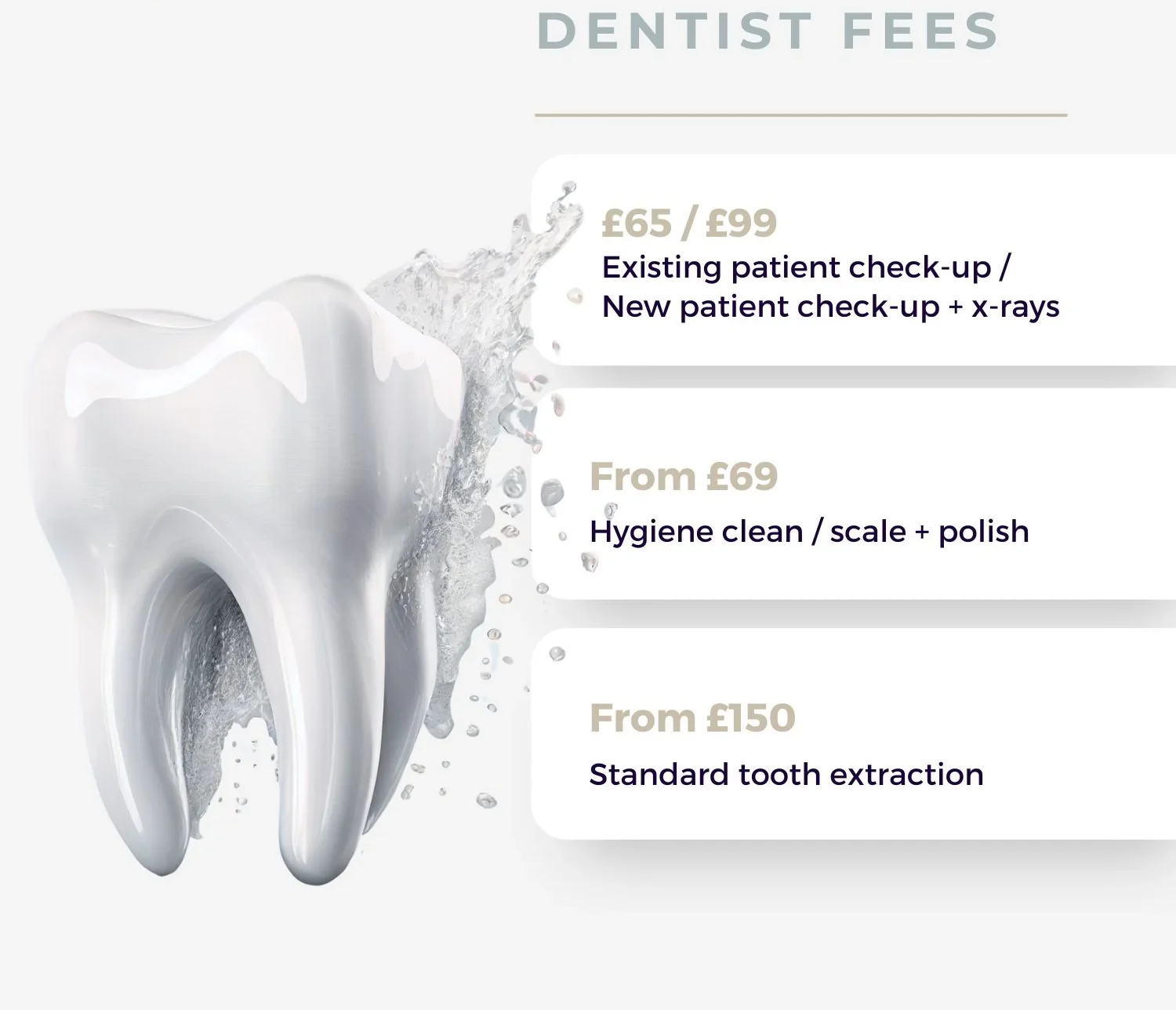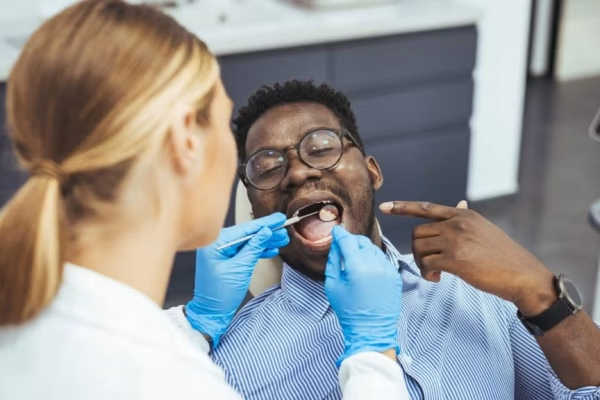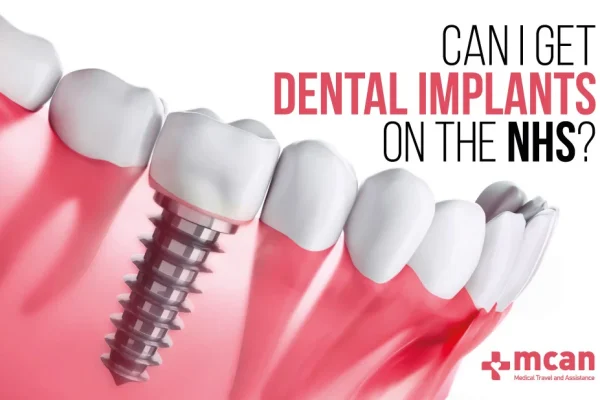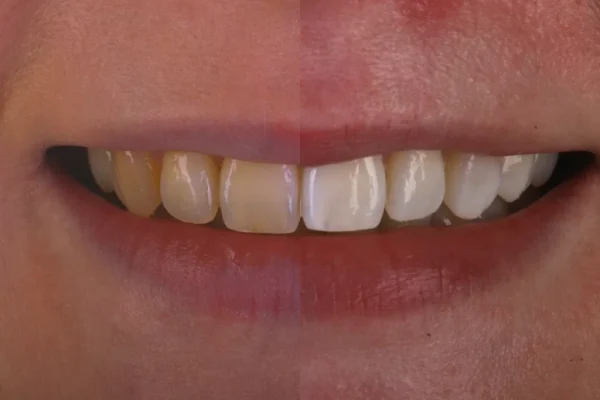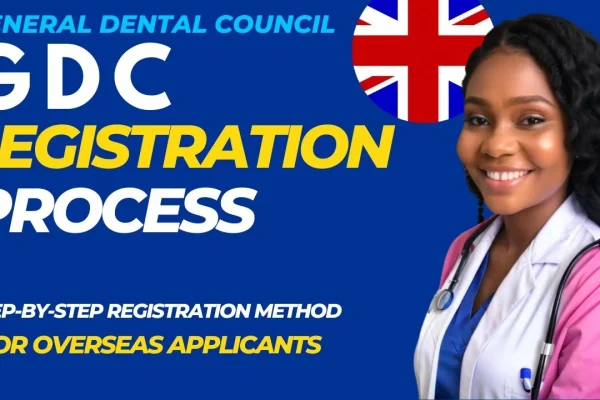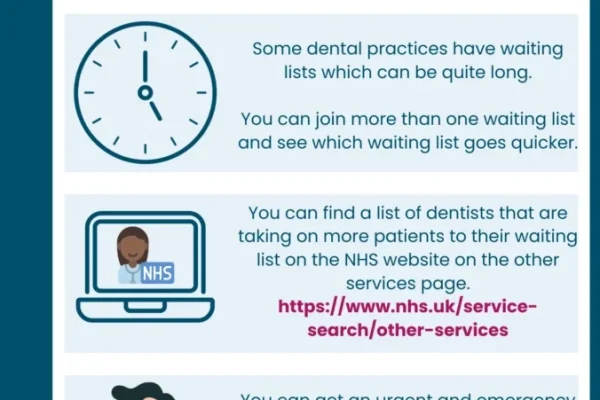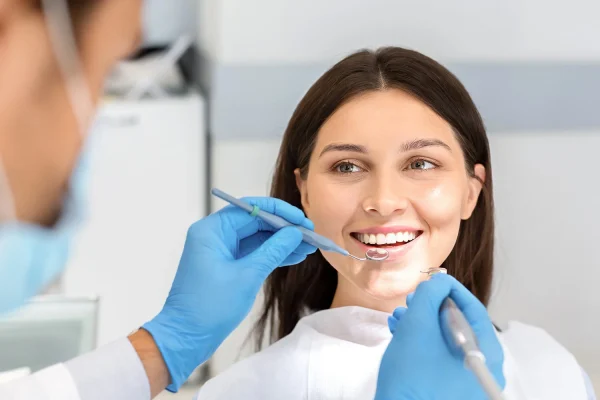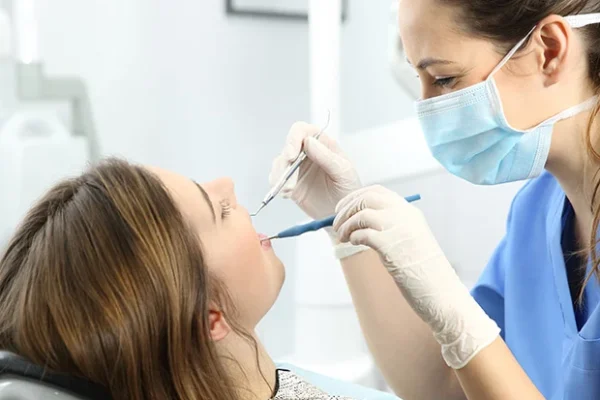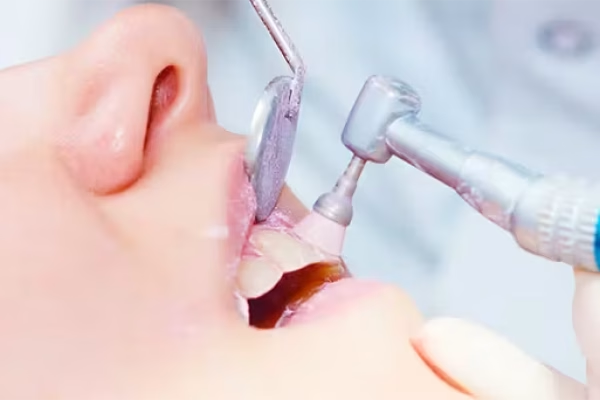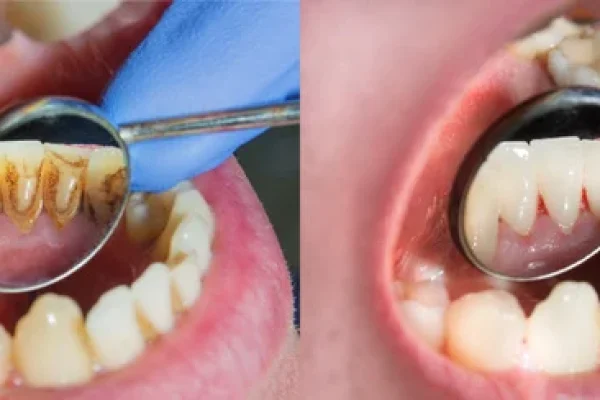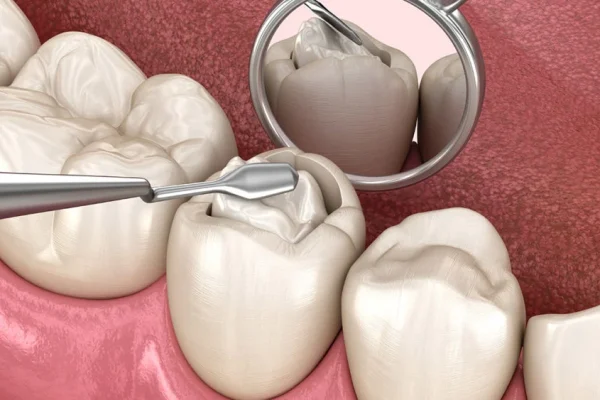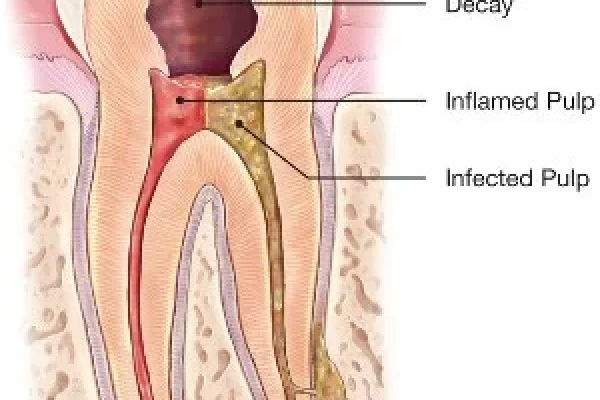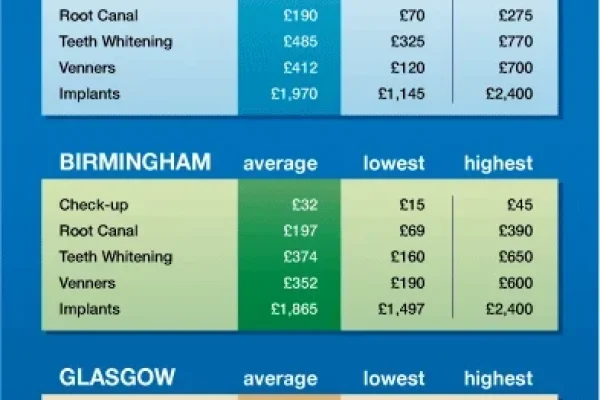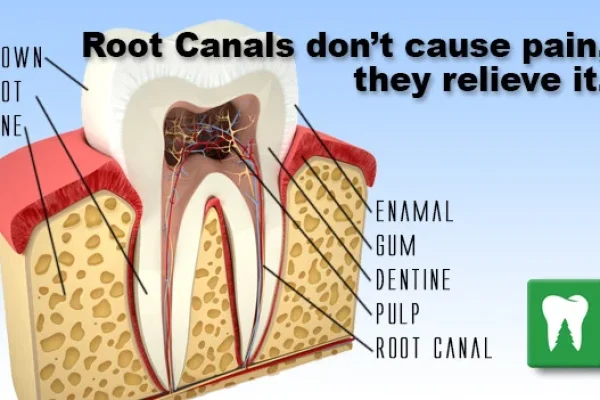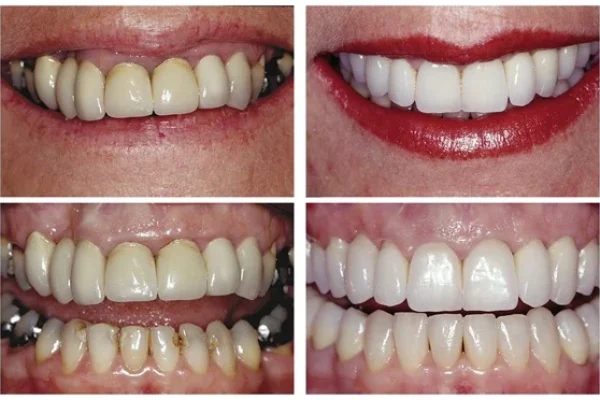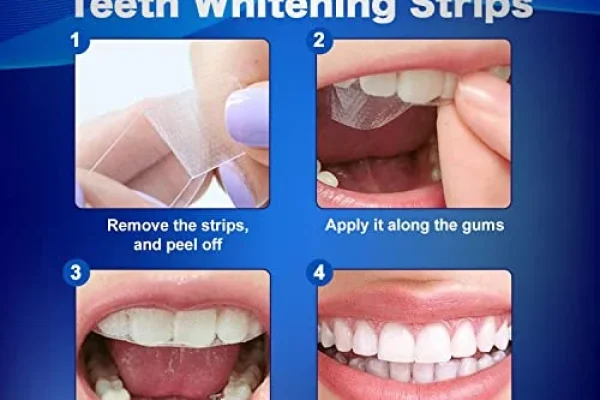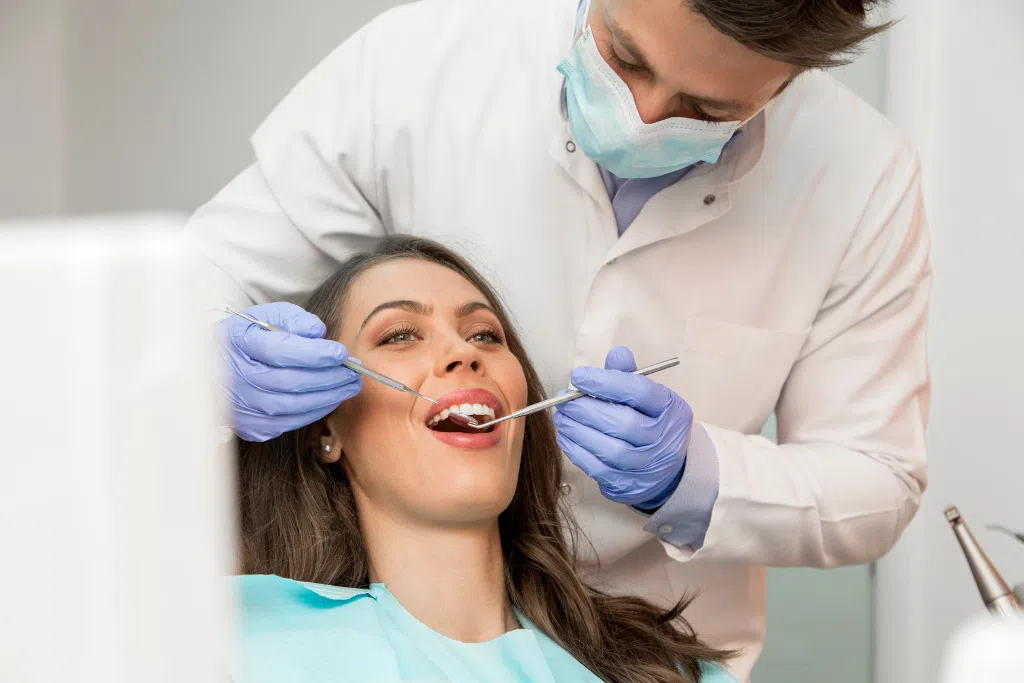
Key Takeaways
-
- The cost of a dental check-up varies significantly between the NHS and private practices.
-
- Factors like location, clinic type, and additional procedures (X-rays, scale & polish) influence the price.
-
- An NHS Band 1 check-up has a fixed national cost (£25.80 as of the latest update) covering examination, diagnosis, advice, and necessary basic extras.
-
- Private check-ups are generally much more expensive and costs are set by individual practices.
-
- Certain groups (children, pregnant women, those on specific benefits) are eligible for free NHS dental treatment, including check-ups.
- Regular check-ups are crucial for long-term oral health and can prevent more costly issues later.
How much is a checkup at the dentist? Understanding the Typical Costs
So, you’re wondering about the price tag on that essential dental pit stop. Let’s be blunt: there isn’t one single, universal answer to “how much is a dentist check up?”. The cost landscape is less a neatly manicured lawn and more a sprawling, unpredictable wilderness of variables. Generally speaking, a basic dental check-up could range anywhere from a modest sum for certain demographics under specific systems (more on that later) to a significantly larger figure in the private sector. We’re talking potentially tens of pounds stretching upwards into the triple digits, sometimes even beyond, depending entirely on where you are, who you see, and crucially, what system you’re accessing care through.
The factors influencing this price tag are numerous and impactful. Think of it like booking a hotel – a budget B&B in a small town is a different ballgame entirely from a five-star suite in Central London. Similarly, the location of the clinic plays a huge role. Dentistry practices in major metropolitan hubs with sky-high rents and proportionally higher staff costs naturally have to charge more to keep the lights on. Then there’s the clinic type itself; are you walking into a small, independent practice, a larger chain, or a highly specialised clinic? Each operates with different overheads and business models. Furthermore, the dentist’s experience and any specific qualifications or specialisms they hold can also factor into the pricing structure, especially in private settings where a highly sought-after practitioner might command higher fees for their expertise and reputation. It’s vital to understand that this isn’t just about a simple visual inspection; it’s about accessing professional expertise, diagnostic tools, and a sterile clinical environment. Therefore, costs can, and frankly, do, vary significantly from one practice to the next, even within the same town. When asking “How much is a standard dental check-up?”, be prepared for an answer that often comes with caveats about location and practice type.
What is the cost of a dental check up? Factors Influencing the Price
Drilling down into why the cost of a dental check up isn’t static reveals the specific components that can send the final bill fluctuating. While the core of a check-up is the dentist’s examination of your mouth, teeth, and gums, it rarely stops there. Often, the dentist needs to utilise diagnostic tools to get a full picture of your oral health, and these come with associated costs. X-rays, for instance, are a common addition to a check-up, allowing the dentist to spot issues invisible to the naked eye, such as decay between teeth, bone loss, or problems with roots. A single small X-ray or a full mouth panoramic X-ray will add to the overall expense. The type of X-ray technology used (traditional film vs. digital, which requires specific, often expensive equipment) can also influence this.
Beyond diagnostics, preventative or basic maintenance procedures frequently bundled with or performed immediately after a check-up can significantly bump up the price. A scale and polish, removing plaque and surface stains, is a prime example. While a very light scale might be included in a basic package, a more thorough cleaning to address heavier build-up will likely be an additional charge. The complexity of this procedure, the time taken, and whether a hygienist performs it or the dentist can affect its cost. Other other procedures done during the check-up appointment itself might include the application of fluoride varnish (especially for children or those prone to decay) or fissure sealants. Each of these services, though beneficial, adds to the overall cost because they require additional materials, equipment, and the practitioner’s time. It’s crucial to understand upfront what is included in the quoted ‘check-up’ fee and what might be considered an ‘additional service’ that incurs further charges. Location differences, as mentioned before, compound these factors; the base cost of the check-up and each subsequent service like an X-ray or scale and polish will be influenced by the practice’s geographical setting, with urban areas typically having higher prices due to overheads and competition.
How much is a dentist check up charge?
Let’s unpack the specific charge you see on your bill after a dentist check up. When a practice quotes a fee for a check-up, how much is dentist check up really covering? Typically, this charge fundamentally includes the dentist’s time for a thorough examination of your oral cavity. This involves visually inspecting your teeth for signs of decay, assessing the condition of existing fillings or restorations, checking your gums for signs of periodontal disease (gingivitis or periodontitis) by gently probing around the teeth, and often screening the soft tissues of your mouth, tongue, and throat for any abnormalities that could indicate conditions like oral cancer. They will also assess your bite and jaw joints and discuss any concerns you might have about sensitivity, pain, or aesthetics. Included in this basic charge is usually basic advice on maintaining good oral hygiene at home – guidance on brushing techniques, flossing or interdental cleaning, and dietary recommendations.
However, it’s paramount to clarify if the initial quoted ‘check-up’ charge is a fixed, all-inclusive fee for this initial assessment, or if it’s merely the starting point. Often, especially in private practices, the fee might cover the examination and basic advice, but any subsequent actions taken during that appointment, such as the aforementioned X-rays or a scale and polish, will be itemised and added as extra fees. This is a key area for potential confusion, so never hesitate to ask for a clear breakdown of costs before any treatment or additional services are rendered. For those residing in the UK, understanding “dentist check up cost uk” involves navigating both private rates and the specific pricing structure of the NHS, which operates on a fixed banding system. Similarly, “dental check-up cost uk” searches will lead you to information distinguishing between the two pathways. It’s always wise to check the practice’s fee guide or ask reception for a clear breakdown of their charges before booking, ensuring you understand exactly what the quoted figure covers and what might incur additional costs, preventing any unwelcome surprises when it’s time to settle up.
How Much is a Dental Check Up on the NHS?
Navigating the cost of dental care in the UK under the National Health Service offers a more structured, nationally defined pricing system compared to the variability of private fees. For many, the question “how much is a dental check up on the nhs?” is the most pressing. The NHS operates using a banding system for charging patients for dental treatment, ensuring costs are fixed across England, regardless of which NHS practice you visit. This system categorises treatments into three distinct bands, each with a set price. Band 1 is the most relevant for a standard check-up, as it covers the initial examination and basic diagnostic work.
Specifically, the current cost for an NHS Band 1 treatment is a fixed national charge. This specific fee is designed to cover a comprehensive dental examination, which includes an assessment of your overall oral health, checking your teeth, gums, and mouth. Diagnosis is also part of this band, meaning the dentist will evaluate any issues they find and determine the necessary course of action. Crucially, Band 1 also includes advice on how to prevent future problems, such as tips on brushing, flossing, and diet, tailored to your needs. What’s included in the NHS dental check-up itself within this Band 1 fee is the examination, diagnosis, and advice. If the dentist deems it clinically necessary during your check-up, this band also covers simple procedures such as a basic scale and polish to remove minor plaque and tartar, as well as X-rays. This fixed price structure is a cornerstone of the NHS dental service, designed to make basic preventative care accessible across the country. This directly addresses the common query of “nhs dental check up cost”, providing a clear, predictable figure for this foundational level of dental care.
How much does an nhs dental check up cost? Breaking Down the Band 1 Fee
Let’s get right to the numbers for those in the UK asking “how much does an nhs dental check up cost?”. As of the most recent update (this fee is subject to change by the government annually, so always check the official NHS website for the absolute latest figure), the specific monetary cost for the NHS Band 1 treatment is currently £25.80. This is the set fee you will pay for any treatment that falls into Band 1, regardless of how many elements from that band are performed during your single appointment. Crucially, this £25.80 fee explicitly covers the check-up. It’s not just a portion of it; the entire cost for the standard examination, diagnosis, and preventative advice falls within this Band 1 price. So, if you visit an NHS dentist purely for a check-up, this is the maximum you will pay, assuming no further treatment from higher bands is required or agreed upon during that specific appointment.
Understanding what this £25.80 entails helps clarify its value. It covers the dentist’s time to perform a thorough clinical examination of your entire mouth – looking at your teeth for cavities, checking your gums for disease using a probe to measure pocket depths, inspecting your tongue and cheeks, and screening for signs of oral cancer. It includes taking any necessary X-rays the dentist deems essential for diagnosis and providing you with personalised advice on maintaining good oral hygiene. If a small amount of plaque removal (a basic scale) is clinically required as part of maintaining gum health and can be done swiftly within the check-up slot, this is also covered within the Band 1 fee. However, it is critical to grasp that this £25.80 is only for Band 1 treatments. Any further treatment required that goes beyond the scope of Band 1, such as fillings, root canal treatment, or extractions, will fall into higher bands – Band 2 or Band 3 – with significantly different, higher costs. For instance, a Band 2 fee covers treatments like fillings, root canal work, or extractions, while a Band 3 fee covers more complex procedures like crowns, bridges, or dentures. Therefore, the £25.80 covers your “nhs dental check” and the immediate, basic follow-up required for diagnosis and minimal intervention, but initiating restorative work moves you up the cost ladder. This distinction is key when considering “how much is a dental check up nhs” versus the potential total cost if treatment is needed, and directly answers variations like “how much is nhs dental check up?”.
Are Dentist Check Ups Free? Who Qualifies for No-Cost Dental Care?
It’s a common query, often hoped for but rarely the reality for most adults: “Are dentist check ups free?”. The direct answer, for the majority of the adult population in the UK, is no, they are generally not free. As we’ve seen with the NHS banding system, even a basic check-up (Band 1) incurs a charge, albeit a fixed, subsidised one. Private check-ups, of course, also come with a fee. However, there are significant and vital exceptions to this rule – specific groups of people who are legally entitled to free NHS dental treatment or help with the costs.
Understanding who these eligible groups are is crucial for those asking “Are dental checkups free?” or “Who gets a free dentist?”. The NHS provides free dental treatment (including check-ups and any necessary subsequent treatment within the banding system) for certain individuals to ensure vital oral health is accessible regardless of financial situation or specific life circumstances. These groups include:
-
- Children and young people under the age of 18.
-
- Young people aged 18 who are in full-time education.
-
- Pregnant women.
-
- Women who have had a baby in the last 12 months.
-
- People receiving certain qualifying benefits. These include:
-
-
- Income Support
- Income-based Jobseeker’s Allowance
- Income-related Employment and Support Allowance
- Pension Credit Guarantee Credit
- Universal Credit (in certain circumstances, depending on earnings)
-
-
- People named on an NHS tax credit exemption certificate.
-
- People named on an HC2 certificate (full help with health costs).
- People named on an HC3 certificate (partial help with health costs – though this would mean help towards the cost, not necessarily free treatment, but still highly beneficial).
Eligibility is usually proven by showing documentation at the dental practice. For benefits, you’ll need proof of your entitlement. Pregnant women require their MATB1 certificate, and those who have recently given birth need their baby’s birth certificate. Age and education status are typically straightforward to prove. So, while check-ups aren’t universally free, a significant portion of the population, particularly those most vulnerable or on lower incomes, does qualify for no-cost NHS dental care for all clinically necessary treatment, including their regular check-ups.
How can I get free dental care?
For those who fall into one of the eligible categories, accessing free dental care through the NHS is a straightforward process, provided you can find an NHS dentist taking on new patients (which can sometimes be a challenge depending on your location). To figure out “How can I get free dental care?” if you believe you might be eligible, the first step is to identify the specific eligibility criteria you meet from the list detailed previously (under 18/in full-time education, pregnant or recent mother, receiving specific benefits, holding relevant certificates). It is essential to have this criteria clearly established, as you will need to declare your exemption when you attend your appointment.
The process for checking if you qualify is primarily self-assessment based on your circumstances and income, particularly if you are claiming benefits. The official NHS website has comprehensive information on who qualifies for free NHS dental treatment and how to claim it. If you are on a low income but don’t receive one of the qualifying benefits, you might still be able to get help with health costs through the NHS Low Income Scheme. You can apply for this scheme by completing an HC1 application form, which assesses your income and outgoings. If you qualify, you’ll be issued an HC2 certificate (full help) or an HC3 certificate (partial help), which you then present at your dental practice. To access the treatment itself, you need to find an NHS dental practice. You can search for practices near you on the NHS website, and it’s advisable to contact them to see if they are accepting new NHS patients, especially those requiring specific exemptions. While NHS dentistry aims to provide accessible care, it’s important to remember that it covers clinically necessary treatment, not cosmetic procedures. For individuals facing extreme hardship or requiring emergency treatment when unable to find an NHS dentist, in some limited circumstances and locations across the UK, there might be possibilities through dental hospitals (often require referral and have specific intake criteria) or charitable organisations, but these are not widely available or guaranteed routes for routine free care and usually cater to very specific needs or emergencies for vulnerable populations. Your primary pathway for free dental care, if eligible, is through the standard NHS system by confirming your category and finding a practice.
Is a Private Dentist More Expensive? Comparing Private vs. NHS Costs
This is perhaps the most frequently asked question when considering dental treatment options in the UK, and the answer is almost universally yes: Is a private dentist more expensive? In the vast majority of cases, a private dental check-up and subsequent treatment will cost significantly more than the equivalent services provided under the NHS. This fundamental difference in pricing structure is down to how the practices are funded and the nature of the service offered. As previously discussed, NHS dentists operate under a contract with the government, which sets fixed, subsidised prices for treatments categorised into bands. Private practices, conversely, are not constrained by these national price caps. Their costs are set by the individual practice owner, taking into account their operating expenses, desired profit margins, and the specific services and level of care they wish to provide.
The reasons for this higher cost are multifaceted. Private practices do not receive the same level of government subsidy as NHS practices for the treatments they provide. Therefore, they must cover all their operating costs – rent, staff salaries, equipment purchases and maintenance, materials, insurance, utilities, and ongoing training – solely through patient fees. This often leads to higher individual charges for procedures. Furthermore, private practices often invest in the latest dental technology and materials, which can be more expensive than the standard options typically used in NHS dentistry. They may also allocate more time per appointment, offering a less rushed experience and more extensive discussion time with the patient. While NHS treatment focuses on providing care that is clinically necessary to maintain oral health, private dentistry often offers a wider range of treatment options, including cosmetic procedures and a choice of materials (like white fillings on back teeth, which aren’t always available on the NHS unless clinically needed) and potentially shorter waiting times for appointments. Patients choosing private care are often doing so for this increased choice, flexibility in appointment times, perceived higher level of service, or access to specific treatments not readily available on the NHS.
Comparing Costs: Private vs. NHS Dental Check Ups
To put a finer point on the difference, let’s provide a rough cost range for a private check-up to directly contrast it with the fixed NHS Band 1 fee. While the NHS Band 1 check-up (which includes examination, diagnosis, advice, and potentially basic scale/X-rays if needed) is a consistent £25.80 across England (as of the latest update), the cost of a private check-up can vary dramatically. You might find private check-ups starting from around £50 in some areas, but they can easily range upwards to £80, £100, or even significantly more, particularly in affluent areas or at specialist clinics. This price often includes the examination and basic discussion, but similar to the general private cost factors mentioned earlier, X-rays and particularly a scale and polish by a hygienist are frequently itemised as separate, additional costs, which can quickly add another £40 to £100+ onto the final bill for the appointment. Therefore, the total cost for a private check-up appointment including essentials like X-rays and a clean is almost always substantially higher than the NHS Band 1 charge.
Summarising the key differences in cost structure and service between private and NHS:
-
- NHS: Fixed national prices (Band 1 £25.80 for check-up), heavily subsidised, covers clinically necessary treatment using standard materials, potentially longer waiting lists for appointments and treatments. The Band 1 fee is a clear, predictable cost for the check-up itself and basic immediate requirements like necessary X-rays or a simple scale.
- Private: Prices set by individual practices, no national standard, generally much higher costs, covers a wider range of treatments (including cosmetic), offers choice of materials and potentially newer technologies, greater flexibility in appointment times, typically shorter waiting times. The cost for a check-up is highly variable and often just the starting point, with common additions like X-rays and hygiene visits billed separately.
The choice between NHS and private often comes down to a balance between cost, availability, range of treatment options, and desired patient experience. While the NHS provides a vital, affordable service for essential care, private dentistry offers more choice and flexibility at a higher price point.
Frequently Asked Questions About how much is a checkup at the dentist
Got more specific questions buzzing in your head about the cost of that dental visit? It’s understandable. Let’s tackle some of the most common ones head-on, drawing from everything we’ve just laid out.
How much is a standard dental check-up?
Defining “standard” is tricky because costs vary. In the UK, an NHS standard check-up (Band 1) has a fixed national price of £25.80 (subject to change) which covers the examination, diagnosis, and advice, plus necessary X-rays or basic scaling if required. A private standard check-up, however, has no fixed price and can range widely, often starting from £50 and going much higher, with additional costs for X-rays or cleaning.
What is the cost of a dental check up?
The cost depends entirely on whether you’re going via the NHS or privately, and in the case of private, the specific practice and location. Expect £25.80 for an NHS check-up (Band 1) or a variable price from £50 upwards for a private one, potentially with extra fees for additional services performed during the appointment like X-rays or cleaning.
How much is a dental check up on the nhs?
For any treatment covered by NHS Band 1, which includes a check-up, diagnosis, and necessary X-rays or basic scale/polish, the fixed national cost in England is currently £25.80. This covers your examination and initial assessment fully.
Are dental checkups free?
Generally, no, dental check-ups are not free for most adults in the UK, whether NHS or private. However, specific groups, including children, pregnant women, recent mothers, and those on certain benefits, are entitled to free NHS dental treatment, which includes check-ups.
Is a private dentist more expensive?
Yes, almost without exception, a private dentist is more expensive than an NHS dentist for the equivalent treatment, including check-ups. Private fees are set by individual practices, while NHS fees are fixed nationally and are subsidised by the government, making them significantly lower.
Steering through the costs of dental check-ups doesn’t have to feel like root canal surgery for your wallet. By understanding the two main systems in the UK – the fixed, subsidised NHS banding system and the variable, market-driven private fees – you can approach your next appointment with open eyes and a clearer picture of what to expect. Prioritising regular check-ups, regardless of the cost system, remains the best investment in maintaining long-term oral health, potentially saving you from much larger expenses (and discomfort) down the line. Knowledge is power, and in this case, it might just save your teeth… and your bank balance..

